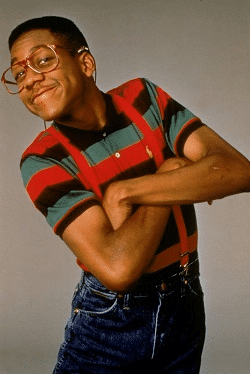In karate, there are a couple of Japanese terms that roughly define the argument between martial arts as a method of self-defense (strictly) and martial arts as a more general method of character and personal improvement. The term 'jutsu' refers to skill, among other things, specifically the kind of skill needed to defend oneself. Put roughly, karate-jutsu is fighting, and the skills necessary for doing so. There is nothing in jutsu that is not related to physical conflict and survival. On the other hand, the more often-heard term 'do' refers to 'way' or path. Many things in Japan are 'do', including archery, calligraphy, tea-making, and of course, karate-do.
However, these days when one hears the term karate-do, one tends to think simply karate. But what kind of karate? Sport or self-defense, usually. In other words, one trains karate to excel in competition, or to defend oneself in a fight. That's not really what 'do' originally meant, I think.
Sometimes, one reads advertisements for martial arts studios aimed at children, which emphasize other tangibles which will be gained along with training for sport or combat, such as self-discipline and respect for others and oneself. These are of course good things and much to be desired. But again, not really the entire meaning of 'do'.
A 'do' is meant to be a lifelong pursuit, and a constant, ongoing, refinement of oneself. Of course, one must learn and have 'jutsu' as well as 'do', but here is my point.
I think of 'do' as a larger part of 'jutsu'. In a Venn diagram, 'do' would entirely encompass 'jutsu'. Jutsu, on the other hand, does not speak to (nor should it have to) development of character, mental and spiritual healthiness, or the larger ways of peaceful avoidance of conflict.
In other words, a martial artist may choose to concentrate more on the 'do' than the 'jutsu' aspects of their martial arts journey; or vice-versa. But the two are not mutually exclusive. Indeed, although one can choose to only focus on the physical aspect of the techniques necessary to compete or defend oneself in a physical struggle, that is not the only valid way to approach martial arts; but the core techniques of one's art cannot be ignored either. Kata, for example, cannot be empty, without practical applications, untested as valid tools to defend oneself. However, one also does not have to stop there. It depends on the martial artist and their journey, their personal path, their inner growth.
In short, do needs jutsu, and jutsu needs do. How much emphasis one puts on them is up to the individual martial artist. There is no wrong way.
However, these days when one hears the term karate-do, one tends to think simply karate. But what kind of karate? Sport or self-defense, usually. In other words, one trains karate to excel in competition, or to defend oneself in a fight. That's not really what 'do' originally meant, I think.
Sometimes, one reads advertisements for martial arts studios aimed at children, which emphasize other tangibles which will be gained along with training for sport or combat, such as self-discipline and respect for others and oneself. These are of course good things and much to be desired. But again, not really the entire meaning of 'do'.
A 'do' is meant to be a lifelong pursuit, and a constant, ongoing, refinement of oneself. Of course, one must learn and have 'jutsu' as well as 'do', but here is my point.
I think of 'do' as a larger part of 'jutsu'. In a Venn diagram, 'do' would entirely encompass 'jutsu'. Jutsu, on the other hand, does not speak to (nor should it have to) development of character, mental and spiritual healthiness, or the larger ways of peaceful avoidance of conflict.
In other words, a martial artist may choose to concentrate more on the 'do' than the 'jutsu' aspects of their martial arts journey; or vice-versa. But the two are not mutually exclusive. Indeed, although one can choose to only focus on the physical aspect of the techniques necessary to compete or defend oneself in a physical struggle, that is not the only valid way to approach martial arts; but the core techniques of one's art cannot be ignored either. Kata, for example, cannot be empty, without practical applications, untested as valid tools to defend oneself. However, one also does not have to stop there. It depends on the martial artist and their journey, their personal path, their inner growth.
In short, do needs jutsu, and jutsu needs do. How much emphasis one puts on them is up to the individual martial artist. There is no wrong way.

